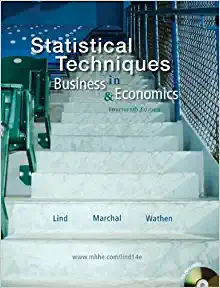Question
Consumers have been able to purchase digital music and audiobooks over the Internet through Apple Computer's iTunes Music Store (Music Store) since April 2003. The
Consumers have been able to purchase digital music and audiobooks over the Internet through Apple Computer's iTunes Music Store (Music Store) since April 2003. The Music Store is integrated with Apple's iTunes Software, which allows users to manage their digital music libraries and to interface with their iPods, iPhones, iPads, and other products.
Apple's stock price increased from $1 per share in April 2003 to over $95 per share in July 2014 (adjusted for stock splits). This 95-fold price increase compares to Microsoft's stock, which increased from about $18 per share to $42 per share over the same period. Apple's strong performance was fueled in part by the growth in its digital music business. In August 2005, Apple's market shares for downloaded music and MP3 players in the United States were approximately 75 percent and 80 percent, respectively. In 2013, Apple's estimated market share for downloaded music was 63 percent. Amazon, which introduced its online music store in 2008, was second with a market share of 22 percent.
From the inception of the Music Store until 2009, Apple priced all downloaded music at $.99 per song. About $.70 per song was paid to the major record companies that had the rights to the songs. The record companies were initially happy with this arrangement because it provided a way to collect at least some revenue from downloaded music. Prior to the development of iTunes, many consumers downloaded music through services such as Napster, with no royalties paid to the music companies or artists.
By August 2005, Music Store sales had become "big business," and two of the four major record companies expressed dissatisfaction with the $.99 price. Sony BMG Music Entertainment and Warner Music favored a more complex pricing scheme that would price songs by popularity. A popular new single, for example, might sell for $1.49, while a "golden oldie" might sell for substantially less than $.99. Executives from these two music companies argued that their revenue stream could be enhanced by flexible pricing. They complained that Apple had an incentive to sell downloaded music at too low a price to promote the sale of iPods. To quote one music company executive, "Mr. Jobs has got two revenue streams: one from our music and one from the sale of his iPods. I've got one revenue stream that it would require a medical professional to locate. It's not pretty."
Not all of the major record companies shared the same view. For example, as of August 2005, the Universal Music Group (a unit of Vivendi Universalthe industry's biggest company) supported Apple's desire to maintain the price of $.99 a track.
The difference in opinion among the four record companies reflected varying views on whether the rapidly expanding digital market was stable enough to bear a mix of pricesparticularly a higher top-end price. Millions of consumers were still trading music free on unauthorized file-swapping networks and an increase in price would increase the incentives to engage in this practice. One music executive noted, "I don't think it's time yet. We need to convert a lot more people to the habit of buying music online. I don't think a way to convert more people is to raise the price."
In 2014, Apple priced most downloaded music at $1.29 per song. Adjusted for inflation, the 2014 price is very close to the 2003 price of 99 cents per song. Apple, however, sold a limited number of songs at 69 cents and 99 cents in 2014.
Over the years, Apple has had substantial power in negotiating with the record companies. No music company has tried to force Apple to change its pricing policies by withholding its music. Analysts, however, forecasted that Apple's leverage over the music companies could fall in the future due to increased competition, for example, from Amazon.com and major wireless companies who were likely to begin offering downloaded music services to cell phone customers.
1) Provide an argument for why a more variable pricing policy might increase the sales revenue from Apple's Music Store (compared to the flat pricing policy).
2) Why do you think Apple moved from one to three price points in 2009? What types of songs do you think Apple tends to sell at the lower prices?
3) Discuss other potential pricing policies that might increase the revenue from Music Store sales.
4) What are the risks and potential costs of implementing more sophisticated pricing schemes for the downloaded music?
5) Is Apple's pricing objective to maximize the revenue it receives from the sales of downloaded music? Is this the objective of the major record companies? Explain. (Hint: Review the revenue/product data from Apple's 10-Kavailable online at www.sec.gov/cgi-bin/srch-edgar.)
6) Do you think that Apple's ability to control the pricing of downloaded music is likely to change in the future? Explain.
Step by Step Solution
There are 3 Steps involved in it
Step: 1

Get Instant Access to Expert-Tailored Solutions
See step-by-step solutions with expert insights and AI powered tools for academic success
Step: 2

Step: 3

Ace Your Homework with AI
Get the answers you need in no time with our AI-driven, step-by-step assistance
Get Started


